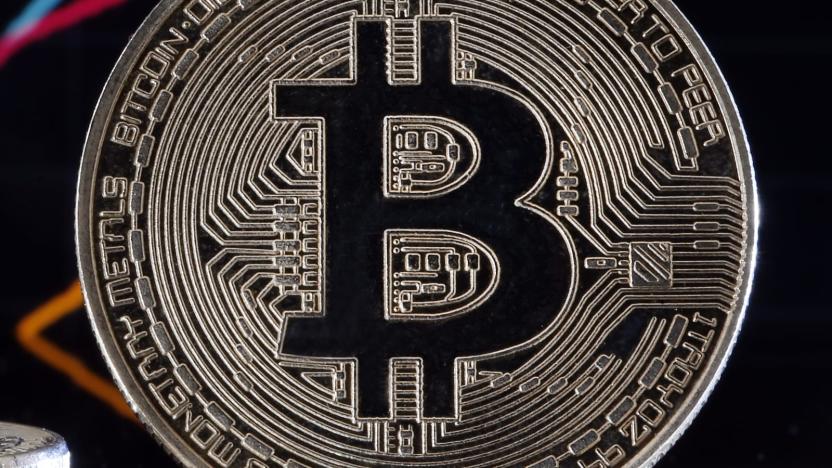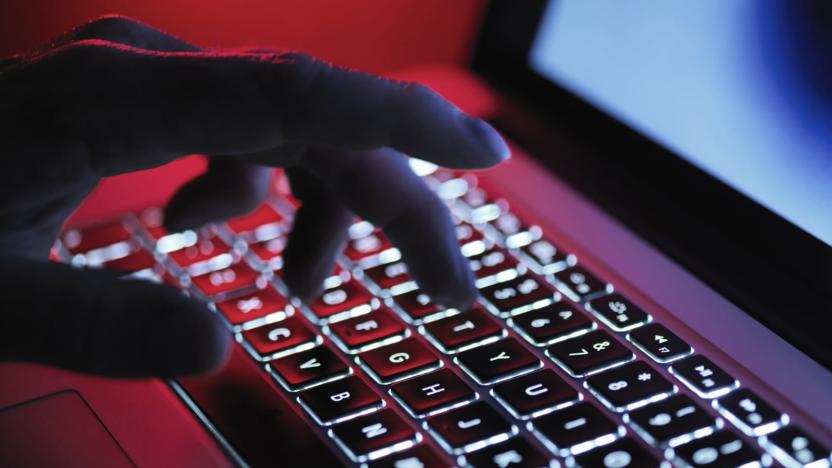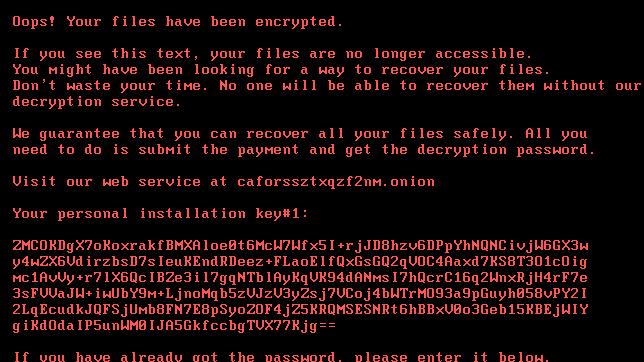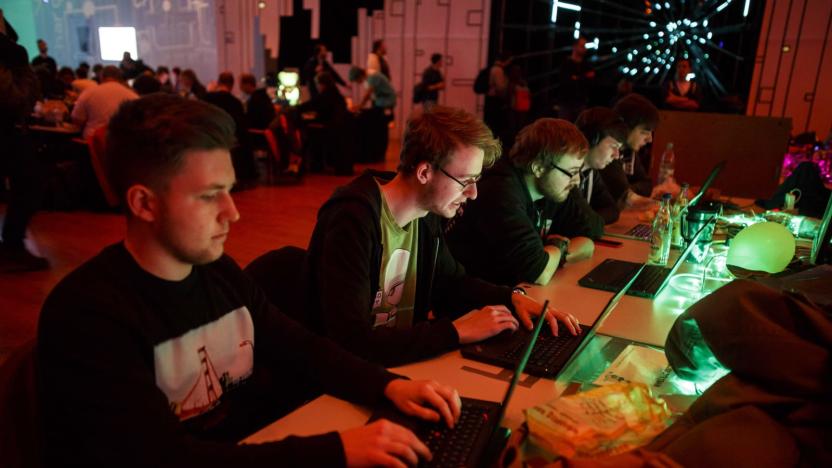darknet
Latest

Germany seizes the world's largest, longest-serving dark web market
German police have shut down Hydra, the world's oldest and largest dark web marketplace.

Dark web news site owner sentenced for role in $8.4 million kickback scheme
A man who oversaw a gateway to dark web marketplaces has been sentenced to 8 years in prison over a kickback scheme.

Ohio man charged for laundering $300 million through Bitcoin 'mixer'
American law enforcement just illustrated how important cryptocurrency has become in the criminal world. Federal agents have charged Ohio resident Larry Harmon for allegedly running a darknet-based Bitcoin "mixer" that laundered the equivalent of roughly $300 million for drug dealers and other crooks. Helix, as it was called while it ran between 2014 and 2017, reportedly let customers pay to send Bitcoin in a way that hid the true source. It operated with "brazenness," the IRS' Don Fort said. Helix supposedly partnered with AlphaBay to serve the darknet black market's customers, and advertised Helix on the Grams search engine (which Harmon apparently ran) as a way to hide deals from police.

Law enforcement shuts down largest known child porn site on the dark web
The US just scored a significant coup against crime on the dark web. Federal agents and international partners have taken down Welcome To Video, believed to be the largest child pornography darknet site to date based on its sheer volume of content. Law enforcement has seized a South Korea server for WTV that held over 8TB of disturbing content, including more than 250,000 videos. It appeared to be a source for exploitative media rather than just a distributor, as 45 percent of the videos studied so far included images that were new to investigators.

Undercover dark web bust leads to more than 35 arrests
The US just broke new ground in its bid to shut down illegal markets on the dark web. A slew of agencies (the Department of Justice, Homeland Security Investigations, the Secret Service, the DEA and the Postal Inspection Service) have announced the first-ever national-level undercover bust of dark web outfits selling drugs, weapons and other contraband. HSI agents pretended to be money launderers on multiple sites in an operation that resulted in arrests for "more than" 35 vendors and seizures worth $23.6 million.

DJI threatens legal action after researcher reports bug
In August, DJI announced that it was launching a bug bounty program that would give out rewards to people who could find flaws in its software. The company said it would pay between $100 and $30,000 depending on the flaw. But according to an essay written by security researcher Kevin Finisterre, and reported by the Verge, the program isn't off to a great start.

New ransomware is causing major issues across Europe and Russia
There's a new ransomware making the rounds today with confirmed targets in Russia, Ukraine, Turkey and Germany. Kaspersky Labs says that nearly 200 victims have been hit with the ransomware that's been dubbed Bad Rabbit.

Dark net black markets are turning to bug bounty programs
Dark net black markets are taking a leaf out of many legit companies' book and turning to bounty hunters to find security flaws in their systems. Hansa Market is one of them. According to CyberScoop, the marketplace, which brought in $3 million last year, has launched a bug bounty program offering rewards worth up to 10 BTC or around $10,000. Considering marketplaces like Hansa sell drugs, illegal firearms, log-ins and other data, the websites likely want to amp up their security measures to protect their sellers from law enforcement. They also likely want to protect all the log-in/password dumps and other data for sale from other hackers who might break into their system to steal them.

2016 claims another victim: Your privacy
In a blow to privacy on par with the Patriot Act, changes to the rules around warrants grant the US government unprecedented hacking powers in any jurisdiction, and on as many devices as it wants. The changes to a measure known as Rule 41 were made earlier this year but went into effect Thursday after lots of opposition. Basically, they let any judge issue a warrant to remotely access an unlimited number of computers and devices located in any jurisdiction. There was plenty of objection from senators and congresspeople, groups like the Center for Democracy and Technology and companies such as Google, who said it's unconstitutional and invades citizens' rights to privacy.

The Dark Web has its first major news publication
The Dark Web has a nasty reputation (and deservedly so) but perhaps investigative news publication ProPublica being the first major media organization on the anonymized version of the internet can change that a bit. The reasoning? "We don't want anyone to know that you came to us or what you read," ProPublica's web developer Mike Tigas told Wired. The idea is that the publication wants to ensure that people reading its Pulitzer-winning work are safe in places like China where censorship reigns supreme. Or that anonymous sources or leakers can read the articles they provided information for without fear of being caught.

The Darknet-shopping robot has been released by Swiss police
After spending a couple months in Swiss robot prison, the Random Darknet Shopper (RDS) is once again free to purchase random goods from the deepest corners of the Internet. The robot, originally designed as an art installation, was built to navigate the Darknet and autonomously purchase goods using Bitcoin currency. During its three-month run at Kunst Halle St Gallen art gallery in St. Gallen, Switzerland, the Shopper made a variety of purchases, most of which were completely legal. It did, however, also purchase 10 tabs of ecstasy from online retailer Agora, which is what instigated the authorities to step in. The cops confiscated the machine and the Molly. They also threatened the RDS' creators with legal action. However, a panel of judges ruled in favor of the artists, known as the Mediengruppe Bitnik.

Silk Road 2.0 was just the first: police seize more Tor-shielded darknet sites
Yesterday's takeover of Silk Road 2.0 was just the tip of the iceberg apparently, as the FBI and European law enforcement organizations have announced a "global action" against similar darknet marketplaces. "Operation Onymous" resulted in 17 arrests total, the removal of 410 hidden services that allegedly offered illegal drugs and weapons for sale, as well as the seizure of more than $1 million Bitcoins in, $250,000 in cash and drugs. Troels Oerting of the European Cybercrime Center told Wired that his staff hadn't had time to assemble a full list of takedowns, but it includes Cloud 9, Hydra, Pandora, Cannabis Road and more. The Telegraph reports six Britons accused of helping run Silk Road 2.0 are among those arrested, while the BBC has word of two arrested in Ireland. Like both iterations of Silk Road, the sites were using Tor to anonymize access, but were still exposed. Details of how the service was pierced have not been revealed (we have an idea), but The Wall Street Journal quotes Eurojust spokesman Ulf Bergstrom saying "You're not anonymous anymore when you're using Tor."

VR puzzler Darknet teaches players technomancy
E McNeill's Darknet was the winner in the open call category of the 2013 Oculus Indiecade VR Jam. It's a strategy-puzzle game designed for Oculus Rift where players explore a virtual reality computer network and use viruses, worms, exploits and other hacker tools to capture sensitive data from what may or may not be a shady megacorporation. It's practically the definition of cyberpunk, sharing much in common with one of the genre's defining novels, Neuromancer. However, McNeill told Joystiq at PAX Prime that he doesn't particularly like Neuromancer, nor many other cyberpunk tales. "I like the idea of cyberpunk," McNeill said, expressing his feeling that many of the genre's stories – especially those featuring hacking – tend to feel empty and without substance. McNeill proposed The Matrix as an example: "In The Matrix, [the character Cypher] says, 'All I see is blonde, brunette, redhead.' But the falling symbols don't mean anything. They're just backwards kana letters." McNeill said that Darknet is a game aimed at maintaining the sense of mystery that The Matrix's iconic green rain of characters creates, but simultaneously providing an experience where what the player sees and does "actually means something."

Pirate Party lights up Relakks, first commercial darknet
You know, the Pirate Party isn't really doing itself any favors by launching a commercial darknet (read: anonymized network), but then again, who are we to judge? It's not as though we're beyond temptation to kick its wheels and tempt fate with slightly dubious intent (hey, it's not our fault the Media Center didn't record 30 Days this week). The reality of the situation, however, is that the RIAA / MPAA's consistently absurd legal firing line is certainly enough to drive many "nefarious" (read: intimidated) users running for cover from legal embroilment -- hence Relakks. The network hits up its users for about $6.50 (€5) a month for service, which basically moves your data over VPN to servers in Sweden in order to cleanse its origin and proxy your traffic through a Swedish IP address. We might call it clever, but it's not much more than an encrypted proxy run by the peeps most likely to ensure your privacy, be you behaving naughty or nice online. While we suggest the latter, something tells us Relakks isn't going to get too uptight about you being the former, either.[Thanks, Mac & Fredrik]







